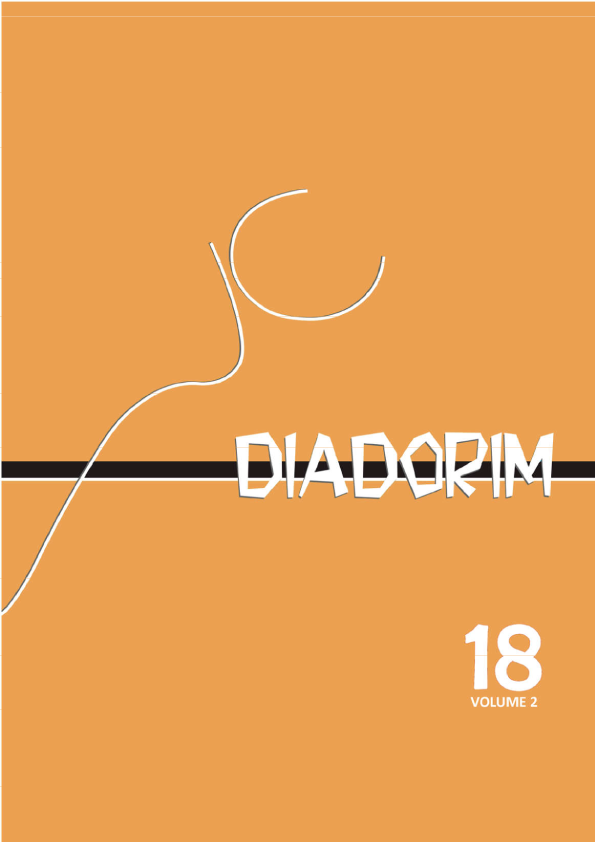Reflection and argumentation in a Moodle mediated discussion board: toward digital literacy
DOI:
https://doi.org/10.35520/diadorim.2016.v18n2a5376Resumo
This paper focuses on an asynchronous, text-based online discussion board, part of a Moodle mediated undergraduate class in Applied Linguistics taught in Brazilian Portuguese to 13 undergraduates enrolled at the Rio de Janeiro State University. The research seeks to study how meaning is discursively and textually co-constructed in a collaborative written task carried out by students posting to the forum and relate findings to digital literacy development. To this end, it qualitatively analyzes the discursive, textual and socio-affective strategies present in the postings. At the discourse level, it looks for possible claims, grounds and warrants and examines both the topic framework and discursive strategies that may project coherence (eg. repetitions). It also analyzes reflexivity, by looking at metacommunicative actions such as the integration of knowledge. At the socio-affective level, it examines how participants relate to each other or rather the presence of questions, elaborations and evaluations. The analysis shows a discursive construction that integrates evidence and explanations from previous readings to the postings as well as some claim-ground-warrant sequences. The retakes of ideas previously posted project coherence and allow participants to position themselves as thinkers. From a sociocultural approach to learning, participants' writing unites the cognitive to the social level dynamically, making their act of participating in the forum an inseparable part of their digital literacy and writing development. However, they are hardly critical of texts and their colleagues' contributions. This latter evidence needs to be explored further, as academic literacy as a whole, and that which is digitally mediated ought to include peer criticism. The paper ends by stressing the need for further understanding of how human interaction within an online environment may be affected by computer mediation as well as its possible affordances and constraints for the development of digital literacy in the academic realm.Downloads
Publicado
Edição
Seção
Licença
Transferência de direitos autorais - Autorização para publicação
Caso o artigo submetido seja aprovado para publicação, já fica acordado que o autor autoriza a UFRJ a reproduzi-lo e publicá-lo na Diadorim: Revista de Estudos Linguísticos e Literários, entendendo-se os termos "reprodução" e "publicação" conforme definição respectivamente dos incisos VI e I do artigo 5° da Lei 9610/98. O artigo poderá ser acessado pela internet, a título gratuito, para consulta e reprodução de exemplar do artigo para uso próprio de quem a consulta. Essa autorização de publicação não tem limitação de tempo, ficando a UFRJ responsável pela manutenção da identificação do autor do artigo.

A Revista Diadorim utiliza uma Licença Creative Commons Atribuição-NãoComercial 4.0 Internacional (CC BY-NC 4.0).

